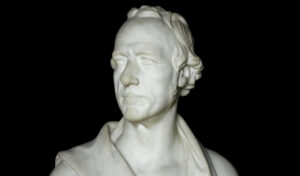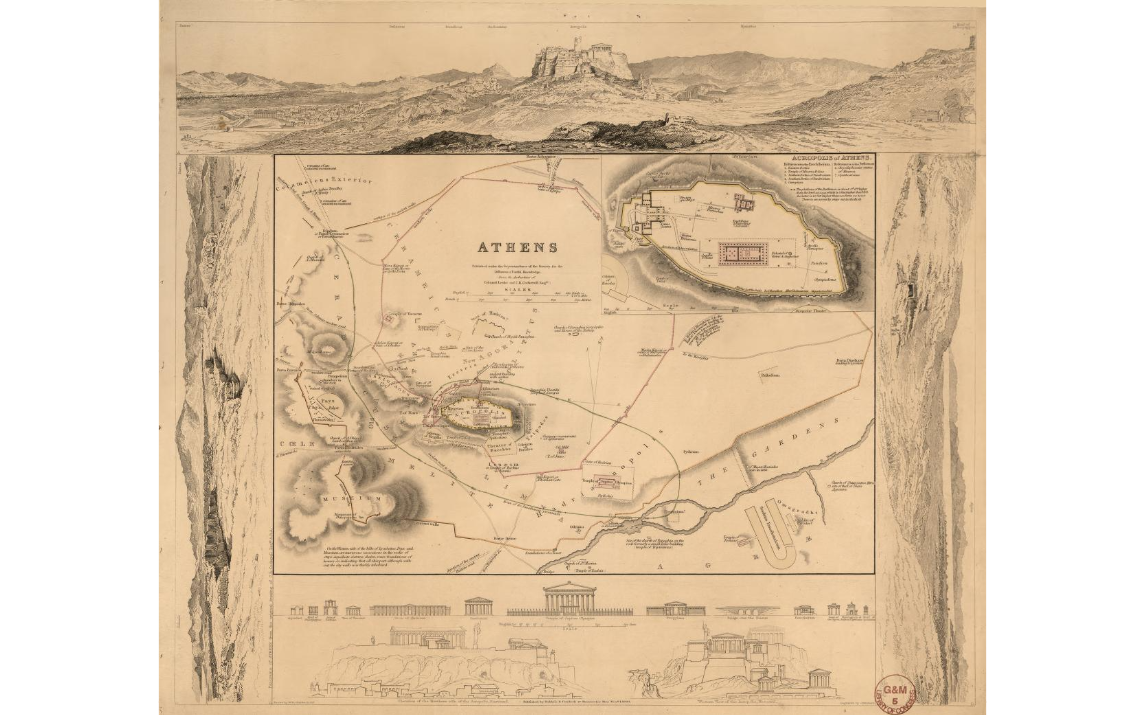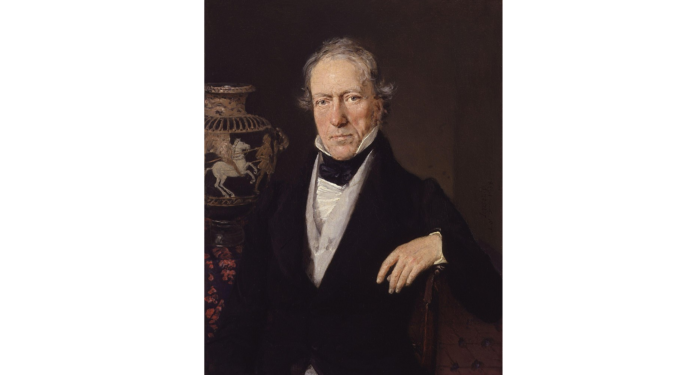By Pantelis Simotas,
William Martin Leake stands as a monumental figure in the annals of classical scholarship and exploration. Born in 1777 in London, England, Leake’s insatiable curiosity and passion for antiquity propelled him on a journey of discovery that would significantly shape our understanding of ancient Greece. Through his meticulous surveys, groundbreaking archaeological excavations, and insightful publications, Leake left an indelible mark on the field of classical archaeology. This article delves into the life and travels of William Martin Leake, highlighting his pioneering contributions to the study of ancient Greece, particularly his extensive explorations in the Hellenic peninsula.
William Martin Leake’s journey into the world of exploration and scholarship began in his formative years. Educated at the Royal Military Academy in Woolwich, Leake’s military training instilled in him a sense of discipline and precision that would later characterize his archaeological endeavors. Joining the British Army’s Royal Engineers in 1794, Leake embarked on a career that would take him to distant lands and ancient sites, fueling his passion for discovery.

Leake’s travels in Greece were nothing short of extraordinary. Armed with a keen intellect and an insatiable thirst for knowledge, he embarked on a series of expeditions that would revolutionize our understanding of classical Greek civilization. One of his most notable achievements was his comprehensive survey of Athens, the ancient cradle of democracy. Venturing beyond the city’s famed Acropolis, Leake meticulously documented its streets, monuments, and archaeological remains, shedding new light on the urban landscape of ancient Athens.
But Leake’s explorations were not restricted to the confines of the capital. He journeyed extensively throughout the Peloponnese, uncovering the secrets of ancient cities such as Corinth, Argos, and Sparta. His surveys and excavations unearthed a treasure trove of artifacts and historical insights, enriching our understanding of the region’s rich cultural heritage.
In addition to his work in the Peloponnese, Leake traversed the rugged terrain of central Greece, exploring regions such as Boeotia, Phocis, and Thessaly. His travels took him to remote mountain villages and ancient sanctuaries, providing him with a firsthand glimpse into the lives of the ancient Greeks.
Leake’s contributions to classical archaeology were manifold. Not content with merely documenting ancient sites, he actively participated in archaeological excavations, uncovering hidden treasures that had lain buried for centuries. His excavations at sites such as Corinth and Delphi yielded a wealth of artifacts, shedding new light on ancient Greek art, religion, and society.
But perhaps Leake’s most enduring legacy lies in his meticulous mapping and cartography. Drawing upon his military training, he produced detailed maps of Greece that were unparalleled in their accuracy and precision. These maps not only served as invaluable tools for future generations of archaeologists but also provided a vivid snapshot of Greece’s ancient landscape.
Leake’s scholarly pursuits culminated in a series of groundbreaking publications that cemented his reputation as a leading authority on ancient Greece. His seminal works, including Travels in Northern Greece (1835) and Travels in the Morea (1830), offered a comprehensive account of his explorations and findings. Filled with detailed descriptions, maps, and illustrations, these volumes became essential reading for anyone interested in the archaeology and history of Greece.

William Martin Leake’s legacy reverberates through the corridors of classical scholarship, his contributions serving as pillars upon which our understanding of ancient Greece rests. His life’s work epitomizes the spirit of adventure, intellectual curiosity, and meticulous scholarship that characterize the finest explorers and scholars of history. Through his extensive travels in Greece, Leake unearthed the buried remnants of antiquity, piecing together the puzzle of a bygone era with painstaking precision.
Leake’s surveys of Athens, the Peloponnese, and central Greece have left an indelible mark on the landscape of classical archaeology. His meticulous documentation of ancient sites, combined with his groundbreaking excavations, has illuminated the once-forgotten corners of the Hellenic world, bringing to life the vibrant tapestry of ancient Greek civilization. Yet, Leake’s legacy extends beyond the realm of archaeology. His pioneering efforts in cartography revolutionized the way we visualize ancient Greece, providing future generations of scholars with invaluable tools for their own explorations. His meticulous maps, crafted with military precision, continue to serve as a testament to his extraordinary skill and dedication. Moreover, Leake’s scholarly publications have stood the test of time, remaining essential resources for anyone seeking to unravel the mysteries of ancient Greece.
Through his detailed accounts, accompanied by vivid illustrations and maps, Leake opened a window into the past, inviting readers to journey alongside him through the ancient streets and sanctuaries of Greece. As we reflect on the life and achievements of William Martin Leake, we are reminded of the transformative power of exploration and scholarship. His tireless pursuit of knowledge, coupled with his unwavering dedication to the preservation of antiquity, serves as an inspiration to all who follow in his footsteps. In the annals of history, William Martin Leake will forever be remembered as a pioneer, a visionary, and a true son of ancient Greece.
References
- John Howard Marsden. A Brief Memoir Of The Life And Writings Of The Late Lieutenant-Colonel William Martin Leake (1864). Kessinger Publishing. Montana. 2009.
- William Martin Leake. Travels in northern Greece. J. Rodwell. London. 1835.




